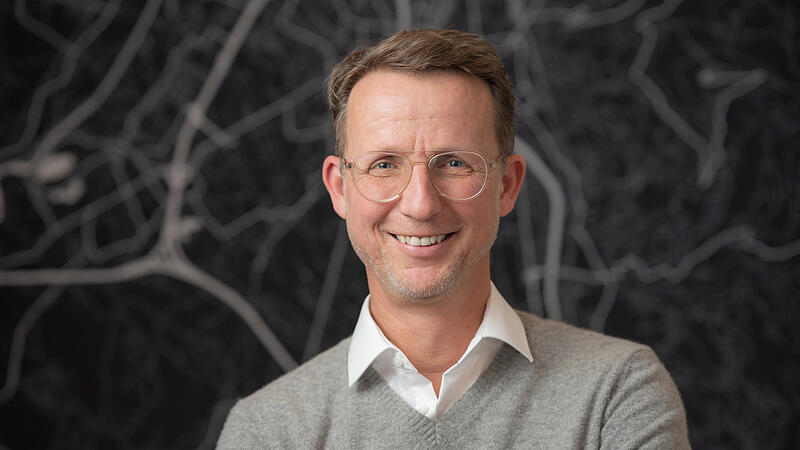Partnerships on an equal footing instead of striving for a great power: In Strasbourg, Chancellor Scholz outlines his idea of the EU’s role in the world. But there is also a lot of criticism against him.
Chancellor Olaf Scholz has clearly spoken out against efforts to make the EU a third superpower alongside the USA and China. “Anyone who nostalgically cherishes the dream of a European world power, who indulges in national great power fantasies, is stuck in the past,” said the SPD politician on Tuesday in the European Parliament in Strasbourg. Other countries would “rightly not accept a bi- or tri-polar world order” in which there are only two or three dominant powers, as was the case during the Cold War.
In doing so, the Chancellor distanced himself from French President Emmanuel Macron, who wants to make the EU a third superpower between China and the USA and is striving for the greatest possible “strategic autonomy”.
“Europe must turn to the world”
Scholz, on the other hand, said: “Europe must turn to the world.” More openness, more cooperation are the order of the day in order to secure Europe a good place in the world of tomorrow. “A place, not above or below other countries and regions. But at eye level with others, at their side.”
Scholz also repeated the basic idea of his foreign policy, according to which the world of the 21st century will be “multipolar”. In the first few months of his tenure, this not only took him to the USA and China, but also to numerous smaller countries. “New economic, demographic and political heavyweights are growing in Asia, Africa and southern America,” said Scholz on Tuesday.
In the EU Parliament, the Chancellor also reiterated his call for a reform of the EU’s decision-making processes. Referring to the planned enlargement of the EU to include countries like Serbia, he said: “It’s really embarrassing that 20 years ago we gave the Western Balkans the opportunity to become a member of the European Union and that we’re not further along today.”
Greens want to see Chancellor fight for Europe
In the ensuing debate, however, he was met with a great deal of criticism – even from his own traffic light coalition camp. “For example, I would like a chancellor who has learned from his own party’s mistakes towards Russia and doesn’t strike exactly the same tone towards China,” said Green Party leader Terry Reintke. Scholz let go instead of positioning himself clearly, she criticized.
“I have to be honest, Mr. Chancellor, the image of you as a chancellor who delivers has unfortunately faded in recent months.” She wanted to see Scholz “fight (…) for Europe,” said Reintke. The Green politician received louder applause for such sentences – not only from the ranks of the Greens – than Scholz for his speech.
Weber calls for more courage in shaping Europe
The head of the European People’s Party (EPP), Manfred Weber, also calls for more leadership from Scholz. Europe needs orientation from Berlin, said the CSU politician. “We don’t need any more keynote speeches. We need the courage now to lead Europe into the future.”
In Brussels and some member states, politicians and EU employees have been increasingly frustrated with the actions of the federal government at European level for months. The chancellor and the ministers are said to be fundamentally very pro-Europe. At the same time, however, there are accusations that opinion-forming processes within the government in Berlin take far too long and that in some places there seems to be a lack of European empathy and understanding of Brussels’ decision-making processes.
Scholz laments increasing rivalry on the part of China
It was the Chancellor’s second major speech on Europe since he took office 17 months ago. In August last year, at Charles University in Prague, he campaigned for far-reaching reforms to prepare the EU for the admission of further members. This time it was about locating the EU in the world.
As far as China is concerned, Scholz was relatively taciturn. However, he followed von der Leyen’s approach: reducing economic dependency instead of decoupling from the country, which is economically very closely intertwined with Germany.
The relationship with China can be accurately described with the triad partner, competitor, systemic rival – although rivalry and competition on the part of China have undoubtedly increased, Scholz added.
Chancellor: Don’t let Putin intimidate you
He warned Russian President Vladimir Putin: “The future does not belong to the revisionists who dream of national glory and thirst for imperial power.” The past will not triumph over the future.
With a view to the Russian war of aggression against Ukraine, Scholz called on the Europeans not to be intimidated by Putin’s “portrayal of power”. “Let’s remain steadfast in our support for Ukraine – as long as it is necessary,” the SPD politician called out to the deputies. The Ukrainians are currently paying with their lives for the madness of their powerful neighboring state.
Speech on Europe Day
The date of the speech was chosen with care. 9 May is Europe Day, commemorating the Schuman plan to combine German and French coal and steel production after World War II. It was presented to the public on May 9, 1950 by the then French Foreign Minister Robert Schuman in Paris and led to the creation of the European Coal and Steel Community, one of the forerunners of the EU.
Source: Stern
I have been working in the news industry for over 6 years, first as a reporter and now as an editor. I have covered politics extensively, and my work has appeared in major newspapers and online news outlets around the world. In addition to my writing, I also contribute regularly to 24 Hours World.




